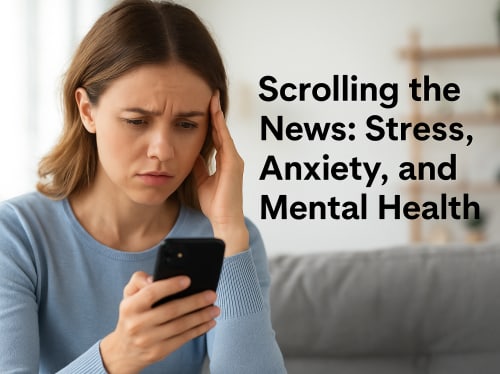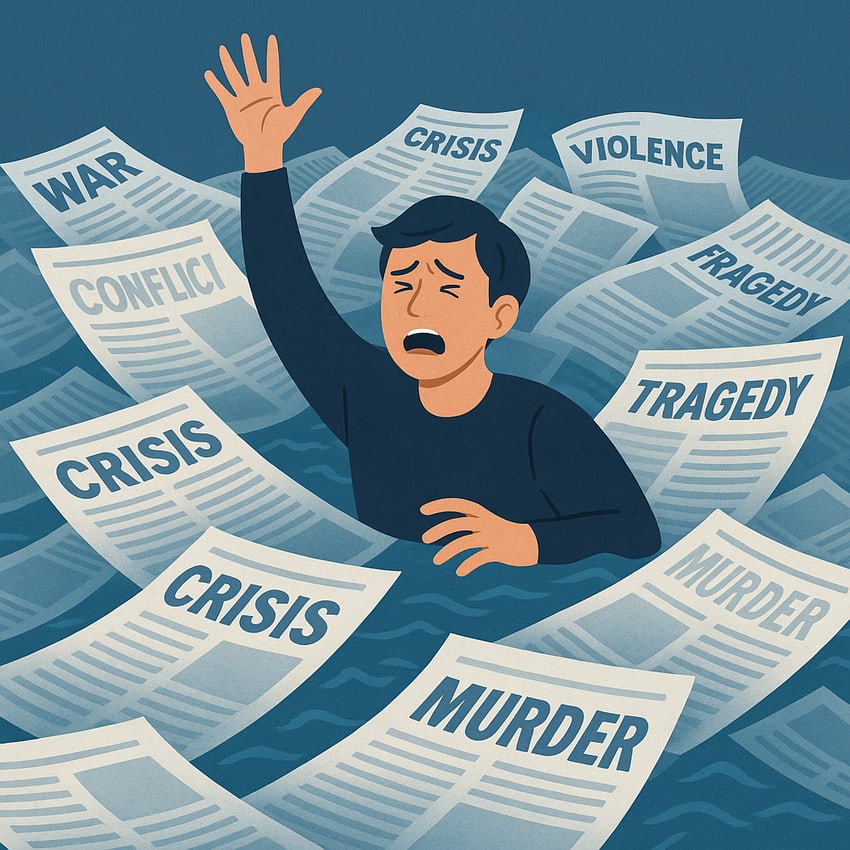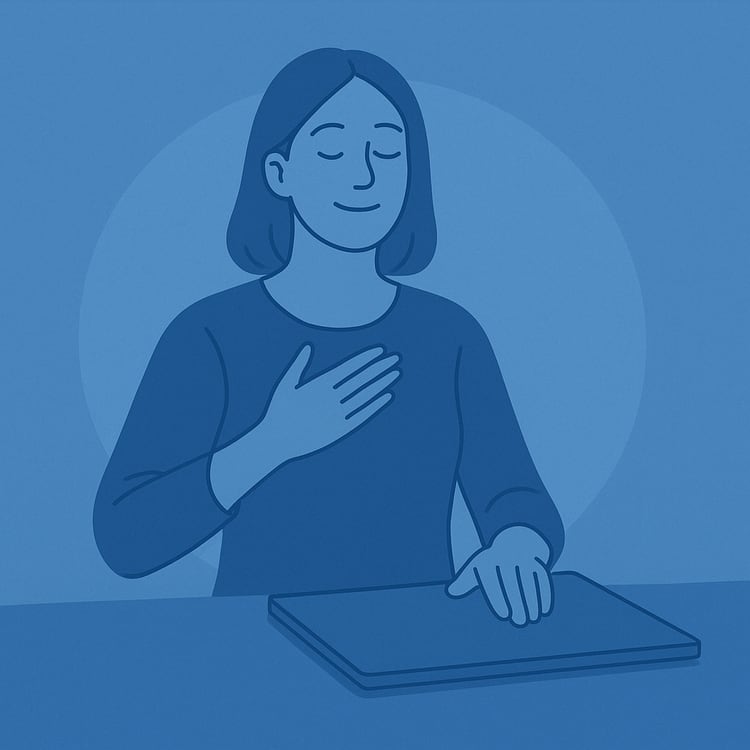Scrolling the News: Stress, Anxiety, and Mental Health

posted 12th September 2025
Scrolling the News: Stress, Anxiety, and Mental Health
“Ever found yourself scrolling through the news, only to feel worse than before? You’re not alone.”
Staying informed matters. The news connects us to what’s happening in our country and across the world. But alongside useful updates often comes a wave of heavy, overwhelming headlines.
From global conflicts to political assassinations and tragedies closer to home, the news cycle can feel relentlessly negative. Add social media into the mix, with its unfiltered access to graphic content, and it’s no surprise that many of us are left feeling anxious, stressed, and emotionally drained.
Why Negative News Hits Harder
Psychologists have long recognised something called negativity bias: our brains are wired to notice threats and bad news more than positive information. Evolutionarily, this made sense; paying attention to danger helped our ancestors survive.
But today, it means we feel bombarded when headlines are filled with violence, conflict, or tragedy. Research shows that repeated exposure to distressing news can heighten stress, anxiety, and even symptoms of depression (Gu, Obrenovic & Fu, 2023).
Unlike traditional news cycles, social media shows us events in real time, often with raw, graphic images. This constant exposure can intensify stress responses, making it harder to switch off. In fact, repeated exposure to media coverage of mass trauma has been found to predict long-term post-traumatic stress symptoms and greater fear about the future (Thompson et al., 2019).
The Doomscrolling Trap
Ever opened a news app “just for a quick check,” only to lose half an hour scrolling through grim headlines? That’s doomscrolling.
Doomscrolling means getting stuck in a cycle of negative news, even when it leaves us feeling worse. It’s driven by habit, fear of missing out (FOMO), and our brain’s negativity bias. The more shocking a story, the harder it is to look away.
The problem is that doomscrolling fuels anxiety. The more uncertain we feel, the more we check for updates. But those updates rarely bring relief — they usually increase stress.
During global crises, such as the COVID-19 pandemic, doomscrolling was linked to higher levels of anxiety, depression, and poor sleep (Bendau et al., 2020). In short, it tricks us into thinking we’re staying informed, when in reality it drains our mental health.
Smart News Habits for a Healthier Mind
Staying updated doesn’t have to mean feeling overwhelmed. Psychology shows that how we consume the news matters just as much as what we consume. Here are five strategies to protect your mental health:
1. Set boundaries on news exposure
Don’t avoid the news entirely, but resist the urge to constantly check. A UK study found that people who consumed excessive media during lockdown reported higher levels of anxiety and depression (Neill et al., 2021).
Try short, scheduled check-ins, once in the morning and once in the evening, and avoid scrolling before bed.
2. Be selective with sources
Not all outlets are equal. Some thrive on fear-driven, sensational headlines. Choose balanced, reliable sources that keep you informed without overwhelming you.
3.Reframe your thinking
Cognitive reframing, a technique from CBT (cognitive behavioural therapy), can help reduce helplessness. Instead of focusing only on fear, ask: What’s being done to address this? Or is there something small I can do?
4. Practice mindful consumption
Notice how the news makes you feel. If you sense tension, heaviness, or racing thoughts, pause. Step away, breathe, and use a grounding exercise, like naming five things you can see in the room, to reset.
5. Balance negativity with positivity
Negative headlines dominate, but uplifting stories exist, too. Follow accounts or outlets that highlight positive news to create balance in your feed.
The news will always be there, but your mental health doesn’t have to pay the price.
Reference list
Bendau, A., Petzold, M.B., Pyrkosch, L., Mascarell Maricic, L., Betzler, F., Rogoll, J., Große, J., Ströhle, A. and Plag, J. (2020). Associations between COVID-19 related media consumption and symptoms of anxiety, depression and COVID-19 related fear in the general population in Germany. European Archives of Psychiatry and Clinical Neuroscience, 271. doi:https://doi.org/10.1007/s00406-020-01171-6.
Gu, X., Obrenovic, B. and Fu, W. (2023). Empirical Study on Social Media Exposure and Fear as Drivers of Anxiety and Depression during the COVID-19 Pandemic. Sustainability, 15(6), p.5312. doi:https://doi.org/10.3390/su15065312.
Neill, R.D., Blair, C., Best, P., McGlinchey, E. and Armour, C. (2021). Media consumption and mental health during COVID-19 lockdown: a UK cross-sectional study across England, Wales, Scotland and Northern Ireland. Journal of Public Health, 31. doi:https://doi.org/10.1007/s10389-021-01506-0.
Thompson, R.R., Jones, N.M., Holman, E.A., and Silver, R.C. (2019). Media exposure to mass violence events can fuel a cycle of distress. Science Advances, [online] 5(4), p.eaav3502. doi:https://doi.org/10.1126/sciadv.aav3502.





